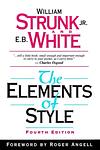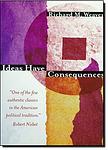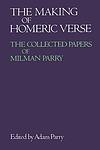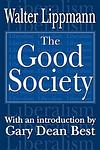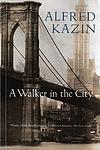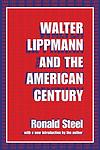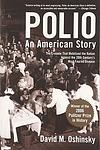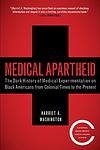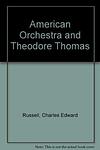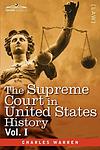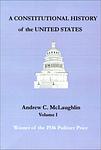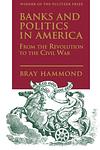The Greatest American "Nonfiction, Humanities" Books of All Time
Click to learn how this list is calculated.
This list represents a comprehensive and trusted collection of the greatest books. Developed through a specialized algorithm, it brings together 305 'best of' book lists to form a definitive guide to the world's most acclaimed books. For those interested in how these books are chosen, additional details can be found on the rankings page.
Genres
The category of "Humanities" in books encompasses a wide range of subjects that explore the human experience and expression. This includes literature, philosophy, history, art, music, religion, and language. These books aim to deepen our understanding of the world and ourselves, and to explore the complexities of human culture and society. Through the study of humanities, readers can gain insight into the past, present, and future of humanity, and develop a greater appreciation for the diversity of human thought and expression.
Countries
Date Range
Reading Statistics
Click the button below to see how many of these books you've read!
Download
If you're interested in downloading this list as a CSV file for use in a spreadsheet application, you can easily do so by clicking the button below. Please note that to ensure a manageable file size and faster download, the CSV will include details for only the first 500 books.
Download-
1. The Elements of Style by E. B. White, William Strunk Jr.
This book is a definitive guide and classic manual on the principles of English language read by millions of readers. The 18 main topics are organized under headings such as Elementary Rules of Usage, Elementary Principles of Composition, A Few Matters of Form, Words and Expressions Commonly Misused, and An Approach to Style. The book's unique tone, wit and charm have conveyed the principles of English style to millions of readers, making it a beloved resource for those who want to write clear, correct and effective prose.
The 331st Greatest Book of All Time -
2. The Great War and Modern Memory by Paul Fussell
"The Great War and Modern Memory" is a critical analysis of the impact of World War I on the English society and culture. The author explores the war's influence on literature, language, and symbolism, arguing that the horrific experiences of the war drastically altered public perception and understanding of conflict, honor, and heroism. The book combines literary criticism, history, and social commentary to provide a comprehensive examination of the war's lasting effects on the collective memory of the English-speaking world.
The 1118th Greatest Book of All Time -
3. A Theory of Justice by John Rawls
This book presents a seminal work in modern political philosophy, where the author proposes a model of justice that, despite being egalitarian, respects individual rights. The author's "veil of ignorance" thought experiment, which suggests designing society from an original position where no one knows their future place in society, has been particularly influential. The author argues that this would lead to a system where each individual is assured basic liberties and socio-economic inequalities are only allowed if they benefit the least advantaged members of society.
The 1129th Greatest Book of All Time -
4. Battle Cry of Freedom by James M. McPherson
"Battle Cry of Freedom" is a comprehensive exploration of the events leading up to, during, and following the American Civil War. The book delves into the political, social, and economic factors that led to the war, and examines the strategies, battles, and key figures of this pivotal period in American history. It also provides an in-depth analysis of the consequences of the war and its impact on the United States.
The 1139th Greatest Book of All Time -
5. The Theory of the Leisure Class by Thorstein Veblen
This book is a socio-economic critique of American consumerism and the upper class, written in the late 19th century. The author argues that the wealthy engage in conspicuous consumption and leisure to display their wealth and maintain their social status. He introduces the concept of "pecuniary emulation," suggesting that the lower classes imitate the consumption patterns of those above them, leading to a wasteful and inefficient economy. The book is a seminal work in the field of economics, providing a satirical yet insightful look into the behavior of the affluent.
The 1193rd Greatest Book of All Time -
6. Natural Right and History by Leo Strauss
This book is an exploration of the concept of natural rights and their relation to history. The author argues that the idea of natural rights is a fundamental aspect of Western civilization and is essential for its survival, but also notes that this concept has been largely forgotten or misunderstood in the modern world. The book examines the origins and development of natural rights, from ancient Greece to the American Revolution, and critiques modern political philosophies that have moved away from this idea. It also discusses the relationship between natural rights and history, and the implications of this relationship for the future of Western civilization.
The 1412th Greatest Book of All Time -
7. Ideas Have Consequences by Richard M. Weaver
"Ideas Have Consequences" is a philosophical work that explores the societal and cultural impacts of ideas, arguing that the decline of Western society can be traced back to the rejection of absolute truth. The author posits that this rejection has led to moral relativism, materialism, and a culture of self-centeredness. He advocates for a return to traditional values and a recognition of universal truths as a means to restore balance and purpose to society.
The 2665th Greatest Book of All Time -
8. Democracy and Leadership by Irving Babbitt
"Democracy and Leadership" is a critical examination of modern democracy, its strengths, and its potential weaknesses. The author delves into the nature of leadership within democratic systems, questioning the effects of populism and mass movements on the quality of leaders. He argues for a balance between individual freedom and societal responsibility, advocating for a more ethical and principled approach to leadership. The book also explores the impact of humanism and romanticism on democratic thought, suggesting that these philosophies can either enhance or undermine the democratic process.
The 2676th Greatest Book of All Time -
9. The Making of Homeric Verse by Milman Parry
This book is a comprehensive study of the structure and formation of the earliest form of Greek poetry, the Homeric verse. It explores the oral tradition of the Homeric epics, suggesting that they were originally composed and performed by illiterate bards who used a complex system of formulaic language to create and remember the epic poems. The book also investigates the influence of the oral tradition on the written versions of the epics, offering a new understanding of the development of ancient Greek literature.
The 2688th Greatest Book of All Time -
10. The Good Society by Walter Lippmann
"The Good Society" is a critical examination of the economic and political systems of the 20th century, with a focus on capitalism and socialism. The author argues that both systems have inherent flaws and suggests a third way, a form of democratic socialism, which would combine the best elements of both systems. The book offers a comprehensive analysis of the economic, social, and political structures of society, and presents a vision for a more equitable and just society.
The 2697th Greatest Book of All Time -
11. Beyond Freedom and Dignity by B. F. Skinner
This book is a controversial exploration of human behavior that challenges the idea of free will and individual autonomy, arguing instead that human behavior is largely determined by environmental factors. The author proposes that societal issues such as overpopulation, war, and pollution can be addressed by using behavioral science to shape human actions. The book also criticizes traditional notions of punishment and reward, suggesting that these methods are ineffective in influencing behavior.
The 2779th Greatest Book of All Time -
12. A Preface to Morals by Walter Lippmann
This book is a philosophical exploration of morality in a post-religious, modern world. The author argues that with the decline of religion, society has lost its moral compass. He suggests that instead of turning to religious dogma, individuals should seek morality through personal introspection and reason. The author also proposes that ethics should be based on the principles of tolerance, understanding, and respect for others. He advocates for a new moral code that is grounded in humanistic values and the pursuit of truth.
The 3438th Greatest Book of All Time -
13. Understanding Poetry by Cleanth Brooks, Robert Penn Warren
"Understanding Poetry" is a comprehensive guide that aims to educate readers about the art of poetry, its interpretation, and its appreciation. It breaks down complex concepts into easily understandable language, making it a suitable read for both novices and seasoned poetry enthusiasts. The book covers a wide range of topics, from the basics of rhythm and meter to more advanced concepts like symbolism and imagery, and includes examples from a variety of poets to illustrate these concepts. It also encourages readers to engage with poetry on a deeper level, fostering a greater appreciation for this form of literature.
The 5738th Greatest Book of All Time -
14. A Walker in the City by Alfred Kazin
This memoir explores the author's experiences growing up as a Jewish child in the Brownsville neighborhood of Brooklyn during the 1920s and 1930s. The narrative delves into his relationship with his family, his Jewish identity, his love for literature, and his observations about the changing urban landscape. As he walks through his old neighborhood as an adult, he reflects on the past, creating a vivid and emotional portrait of his childhood and the immigrant experience in New York City.
The 6169th Greatest Book of All Time -
15. Walter Lippmann and the American Century by Ronald Steel
This book provides an in-depth look at the life and work of Walter Lippmann, one of the most influential journalists in American history. The author explores Lippmann's role in shaping 20th century American politics and public opinion, his relationships with key political figures, and his views on democracy, liberty, and international relations. The book also examines Lippmann's personal life, including his early years, education, and family life.
The 8343rd Greatest Book of All Time -
16. Polio: An American Story by David M. Oshinsky
This book provides a comprehensive history of the polio epidemic in America, highlighting the nationwide fear and panic it caused, and the subsequent race to find a cure. It chronicles the journey of scientific discovery, from the early days of the disease, through the development of the Salk and Sabin vaccines, to the eventual eradication of polio. The book also explores the role of politics, philanthropy, and public relations in the fight against polio, and the impact this had on modern medicine and society.
The 8518th Greatest Book of All Time -
17. Great River: The Rio Grande in North American History by Paul Horgan
This book provides an in-depth historical account of the Rio Grande, one of North America's significant rivers. The narrative is divided into four parts, each representing a different era in the river's history. The author meticulously explores the indigenous cultures that first inhabited its banks, the Spanish conquest, the Mexican-American War, and the modern development of the river. The book is not just about the river itself, but also about the people, cultures, and events that have shaped its course and the region surrounding it.
The 8612th Greatest Book of All Time -
18. Medical Apartheid by Harriet A. Washington
This book is a comprehensive history of medical experimentation on African Americans from the era of slavery to the present day. It investigates the racial disparities in healthcare and delves into the dark history of unethical and often deadly experiments conducted on black people in the United States. The author explores the roots of these practices, their implications, and the ongoing struggle for racial equality in the healthcare system.
The 10003rd Greatest Book of All Time -
19. Pedlar's Progress by Odell Shepard
"Pedlar's Progress" is a historical fiction novel that follows the life of a peddler in the early 19th century. The protagonist travels across America, selling his wares and engaging with a variety of characters along the way. As he navigates through different towns and landscapes, he experiences and observes the changing culture, economics, and politics of the time. The book provides a unique perspective on the early American experience, highlighting the struggles and triumphs of everyday people.
The 11112th Greatest Book of All Time -
20. Between War and Peace: The Potsdam Conference by Herbert Feis
This book provides a detailed account of the Potsdam Conference, a crucial event in world history that took place in the summer of 1945. It explores the interactions and negotiations between the three most powerful men of that time - Winston Churchill, Harry Truman, and Joseph Stalin - who were tasked with deciding the fate of post-WWII Europe. The book also delves into the political dynamics, personal conflicts, and the profound implications of the decisions made during this conference.
The 11112th Greatest Book of All Time -
21. The American Orchestra and Theodore Thomas by Charles Edward Russell
This book is a comprehensive biography of Theodore Thomas, a prominent conductor who played a pivotal role in the development of American orchestras in the 19th century. The author provides an in-depth look into Thomas's life, his contributions to the music world, his vision for American orchestras, and how he transformed the American music scene. The book also explores the broader context of the American orchestra during this time period, shedding light on its evolution, challenges, and triumphs.
The 11112th Greatest Book of All Time -
22. Henry Adams by Ernest Samuels
This biography provides an in-depth look at the life of Henry Adams, a prominent American historian and member of the Adams political family. It delves into his personal experiences, relationships, and intellectual pursuits, offering a comprehensive view of his contributions to American literature and history. The book also explores his complex personality and his struggles with depression, providing a humanizing portrayal of this influential figure.
The 11112th Greatest Book of All Time -
23. The Supreme Court in United States History by Charles Warren
This book offers a comprehensive historical overview of the United States Supreme Court from its inception to the early 20th century. It delves into the evolution of the court's role, its landmark decisions, and its impact on American society. The author provides a detailed analysis of the court's most significant cases, the justices who presided over them, and how their rulings have shaped the nation's legal and political landscape.
The 11112th Greatest Book of All Time -
24. A Constitutional History of the United States by Andrew C. McLaughlin
This book provides a comprehensive analysis of the United States Constitution, tracing its history and evolution from its inception to the present day. The author delves into the philosophical underpinnings and political controversies that have shaped the Constitution, examining key amendments, court decisions, and legislative actions. The work also discusses the roles and powers of the three branches of government, the balance of state and federal authority, and the ongoing debates over individual rights and liberties.
The 11112th Greatest Book of All Time -
25. Banks and Politics in America by Bray Hammond
"Banks and Politics in America" is a comprehensive historical analysis of the relationship between banking systems and politics in the United States. The book explores how the evolution of banking has shaped the nation's political and economic development from the colonial period through the Civil War. It delves into the origins and growth of banking, the controversies and political battles it sparked, and its influence on America's economic stability and growth. The author provides insightful perspectives on the use of banks as a tool for achieving political and economic goals, and the resulting effects on American society.
The 11112th Greatest Book of All Time
Reading Statistics
Click the button below to see how many of these books you've read!
Download
If you're interested in downloading this list as a CSV file for use in a spreadsheet application, you can easily do so by clicking the button below. Please note that to ensure a manageable file size and faster download, the CSV will include details for only the first 500 books.
Download